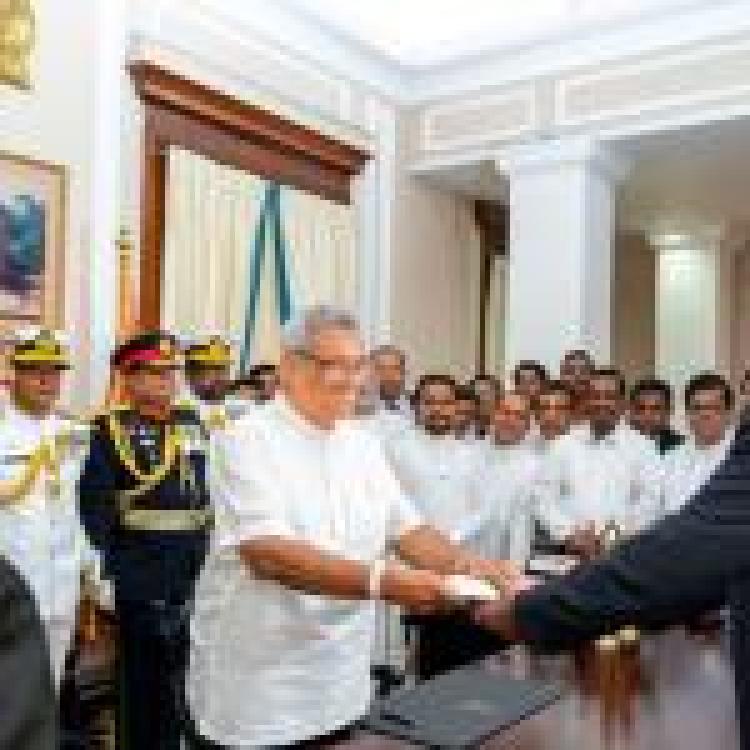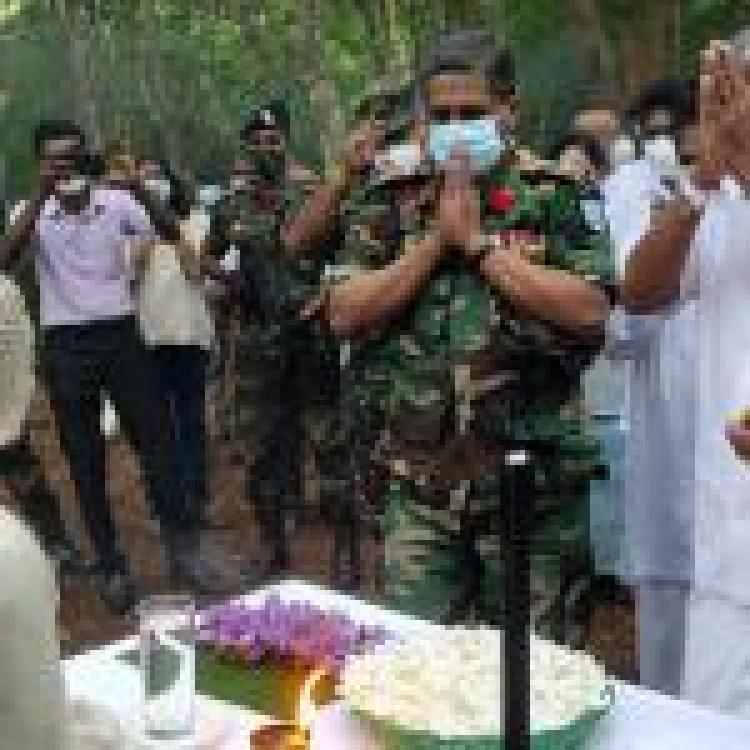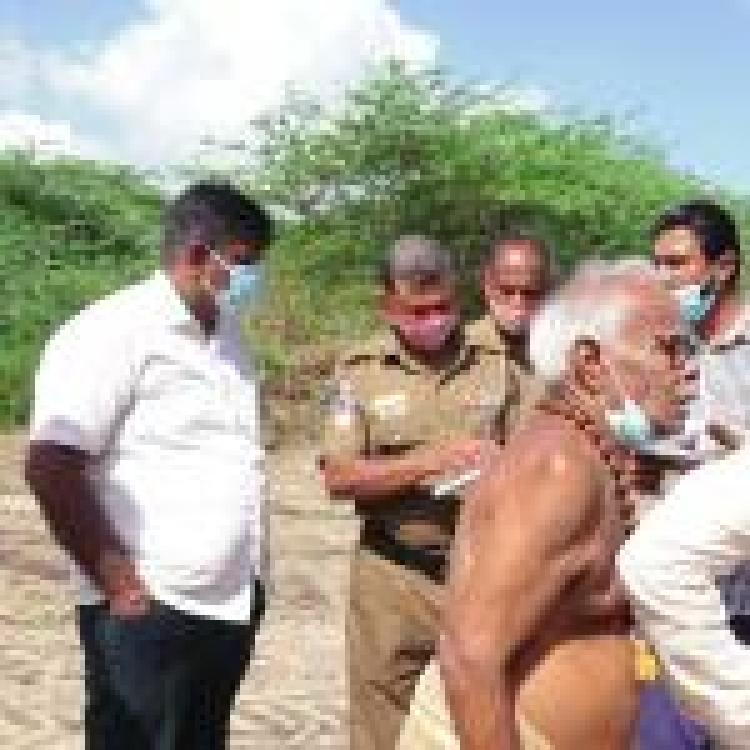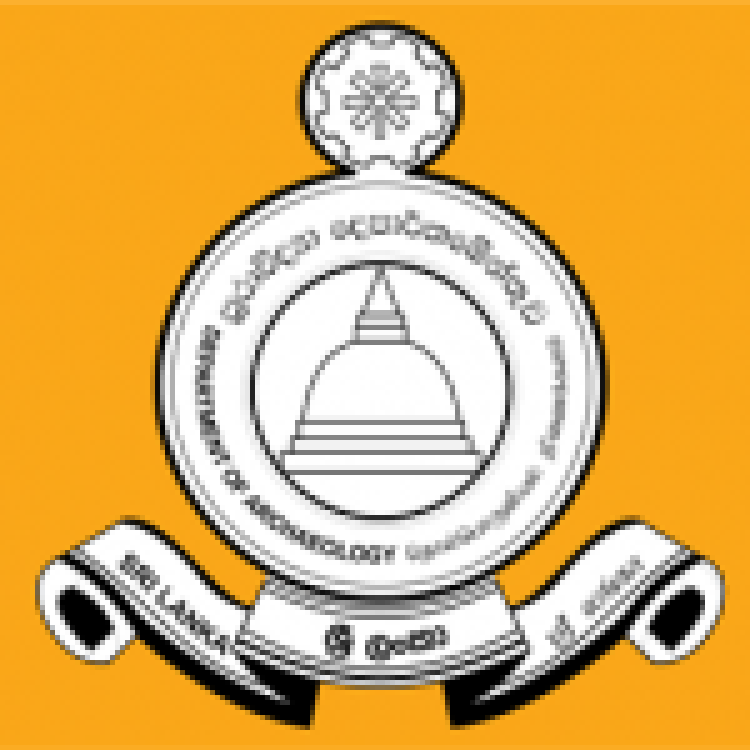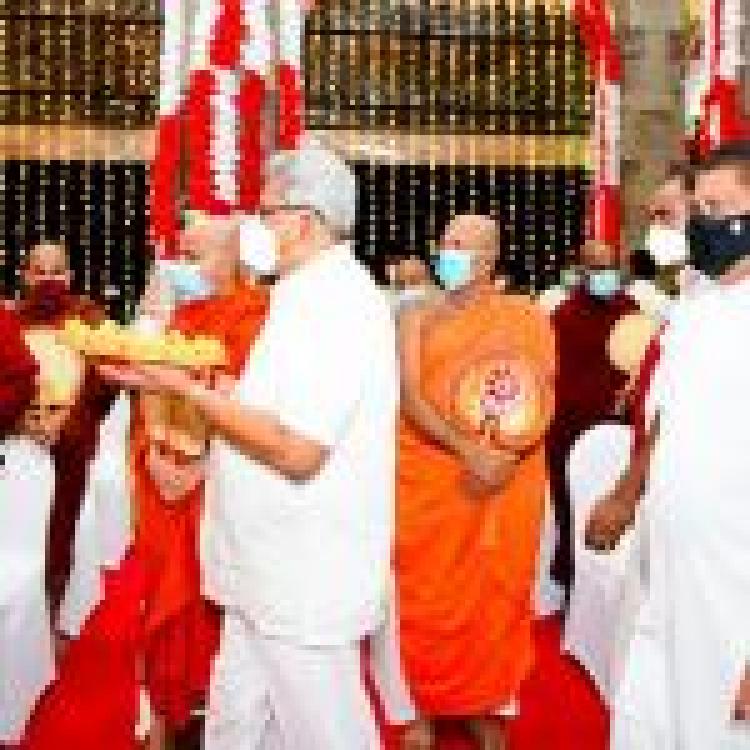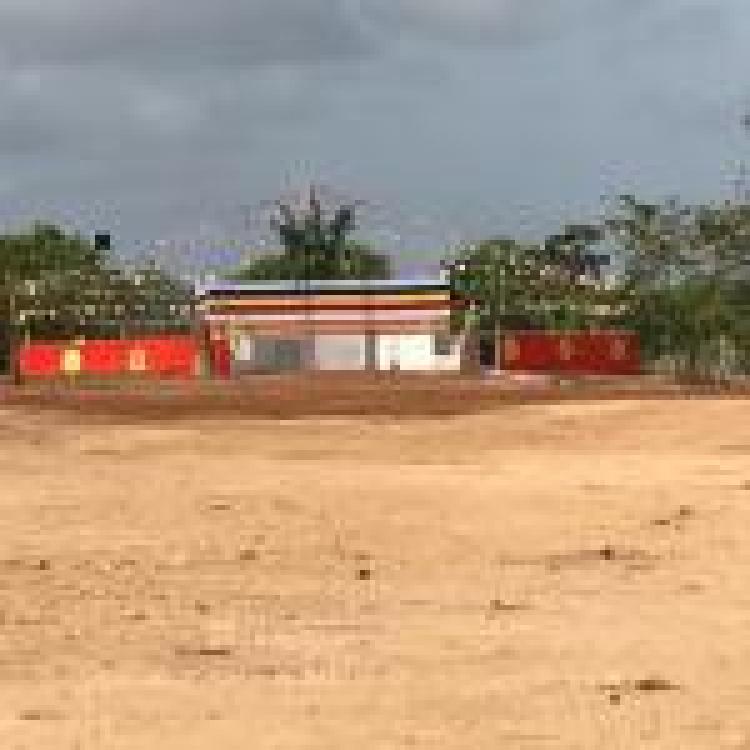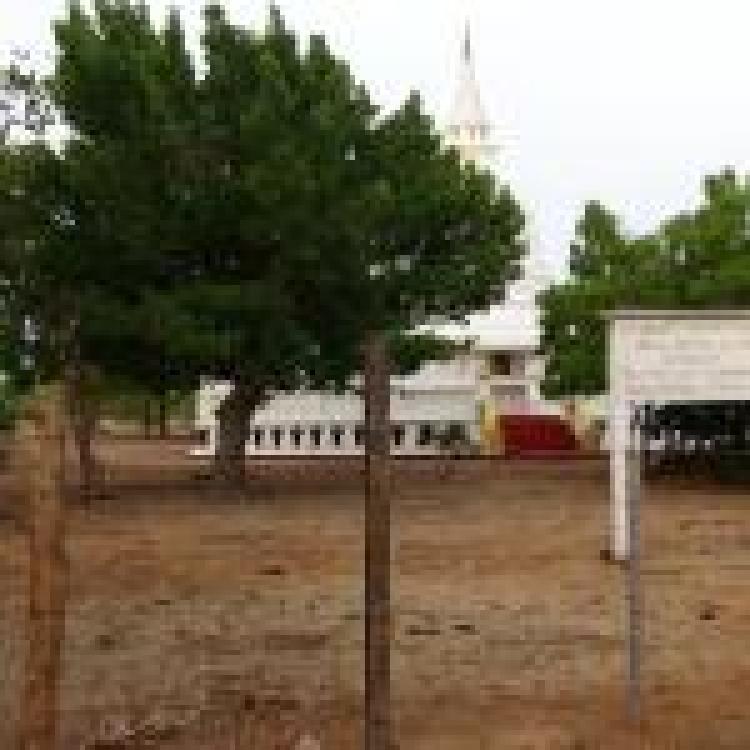Accused war criminal Shavendra Silva
Accused war criminal Shavendra Silva attended a ceremony to lay the cornerstone for the construction of a 100ft Buddhist Stupa in Jaffna.
The ceremony was attended by all departments of the military and members of the Buddhist clergy. Silva was invited as the chief guest by the Commander of the Jaffna security force, General Priyantha Perera. Kandyan drummers led the accused war criminal to the site where he laid the foundation stone.
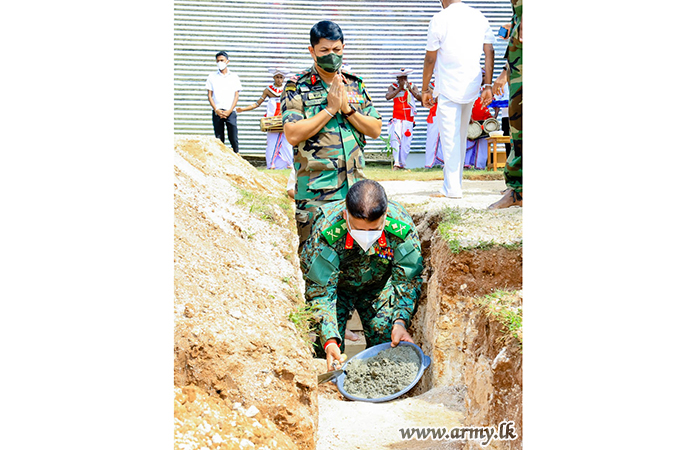
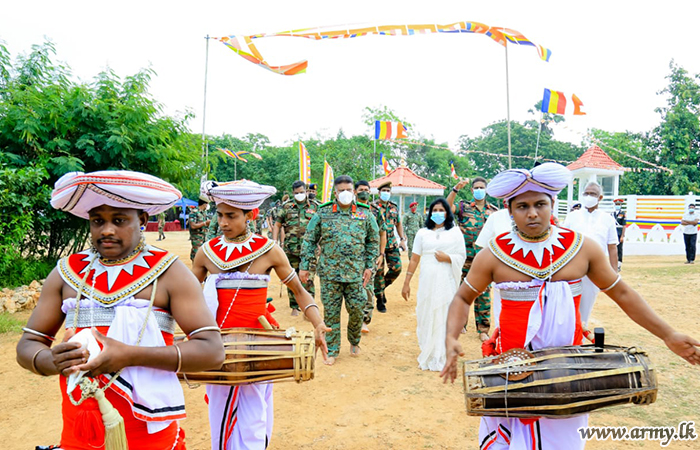
The stupa was designed by the Faculty of Architecture, University of Moratuwa with technical support being provided by Professor Samitha Manawadu and Professor Nimal de Silva of the University. The construction will be completed by military forces.
Shavendra Silva is currently is under sanctions from the US which bar him and his family from entering “due to credible information of his involvement, though command responsibility in gross violations of human right”. He was the head of the notorious 58 th division which stands accused of committing some of the most heinous war crimes towards the end of the armed conflict, which saw tens of thousands of Tamil civilians indiscriminately killed by state forces.
State sponsored Sinhala-Buddhist Colonisation
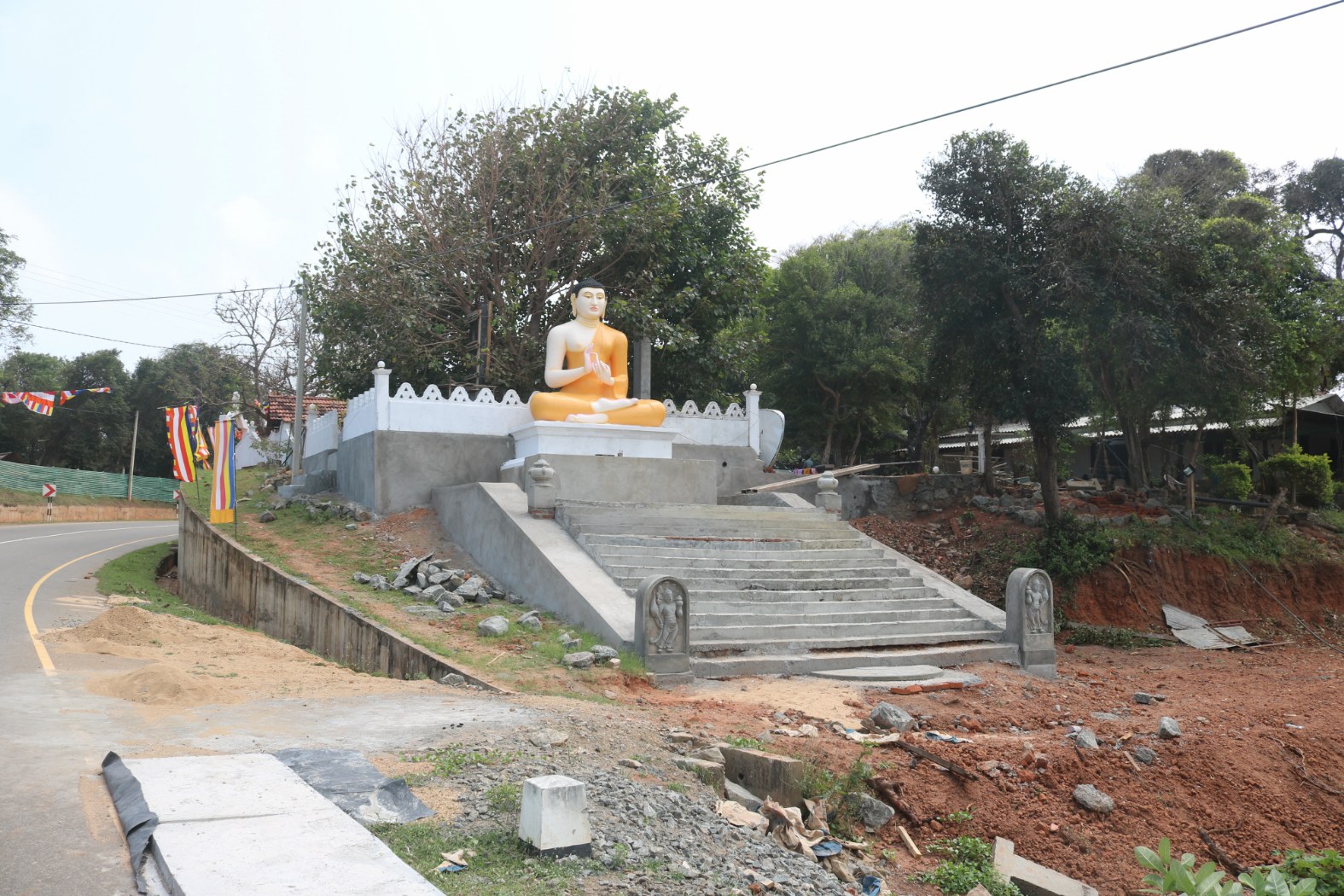
Across the Tamil homeland in the North-East, there have been sustained efforts by the Sri Lankan state to colonise alter archaeological and demographic makeup of traditional Tamil areas. Following a presidential gazette, the formation of an all Sinhala task force for archaeology in the east has allowed for the department to confiscate Tamil land and in turn, build new Buddhist shrines.
Alongside the intense military presence in the North-East, it is common for the military who have established camps on confiscated Tamil land to build large Buddhist Shrines within them or in the near vicinity. This practice has been intensifying alongside state support also being given to Buddhist religious practices in the North-East whilst Hindu, Christian and Muslim practices are limited or observed under heavy surveillance.
Read more : PEARL launches Sinhalization of the North-East info series
Read more: Sinhalisation in the East - Kallady
Read more : Sinhalisation in the East - Ilankaithurai
Read more : Sinhalisation of the North-East: Seruwila-Verugal
Last month an ancient Hindu-Saiva shrine in Mullaitivu was demolished and a Buddhist vihara erected in its place. A ceremony was attended by a larger number of military personnel. The Saiva temple in question situated on Tamil land had been under intense pressure from state-sponsored Sinhala colonisation schemes.
Last year, a senior Buddhist monk who sits on the all Sinhala archaeology task force, earmarked 2,000 sites in the eastern province for ‘archaeological’ examination. Tamils have voiced their fears about further appropriation of land by the state through the task force, as the task force with the full support of the state will be allowed to ‘identify the extent of land that should be allocated for such archaeological sites and take necessary measures to allocate them properly and legally’.
The Sri Lankan govt has intervened on behalf of Buddhist monks attempting to seize the site of a Tamil temple in Mullaitivu. Minister for 'national heritage', accompanied by army & archaeology dept, led an event at Kurunthoormalai placing a new Buddha at the Athi Aiyanar temple. pic.twitter.com/KUrMsd0Sdt
— Tamil Guardian (@TamilGuardian) January 18, 2021
Read more from the Sri Lankan Army here.

